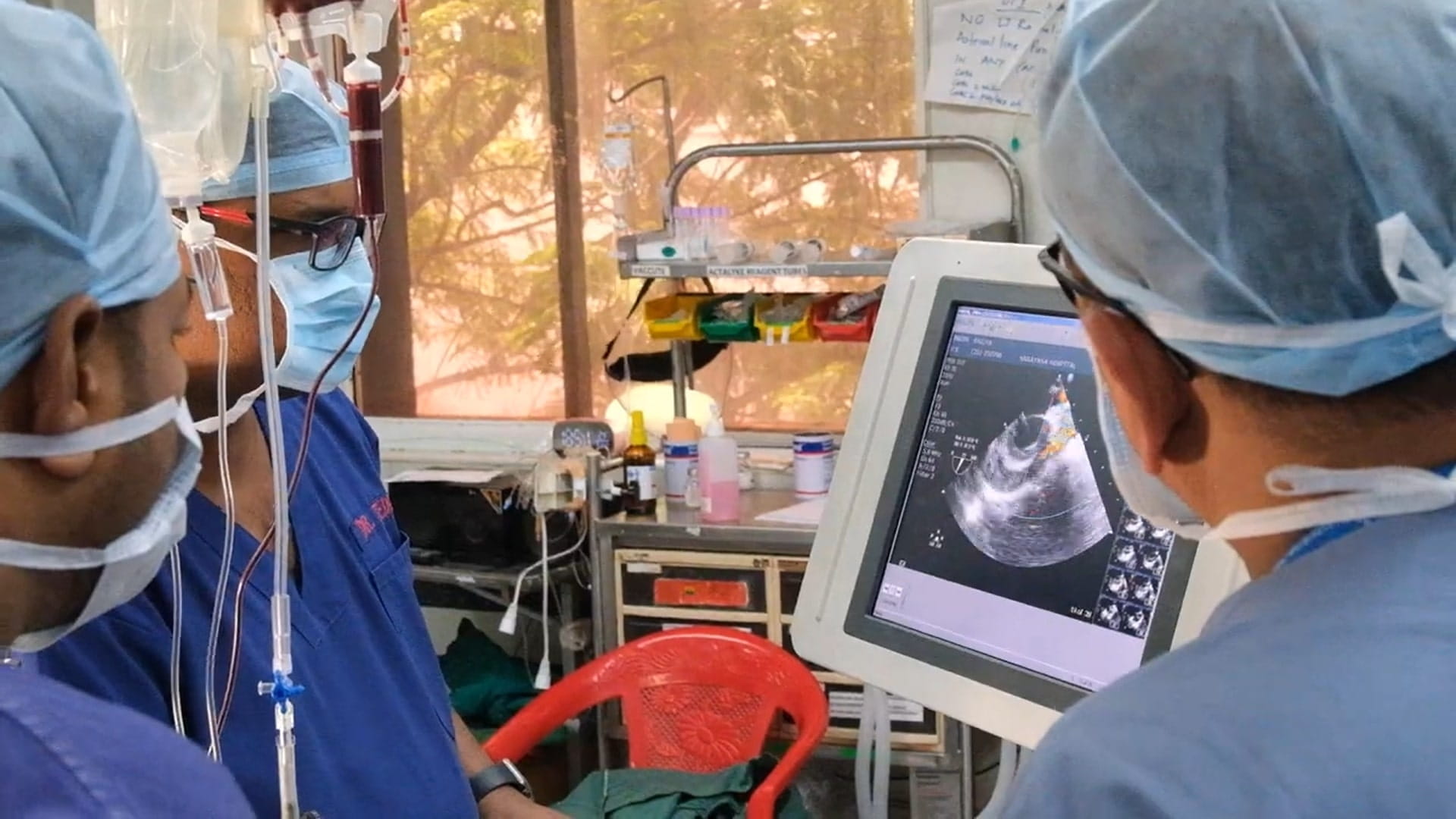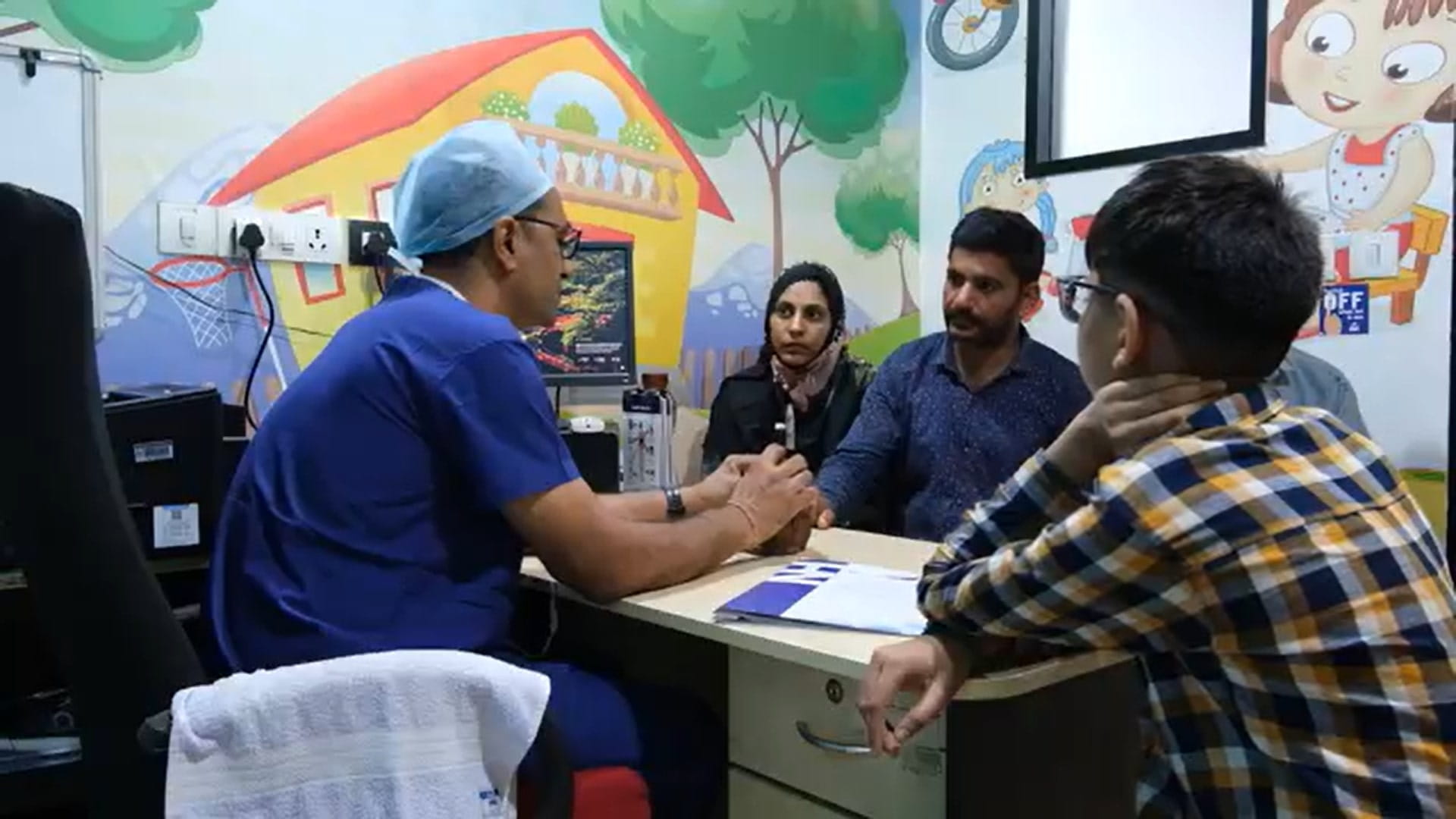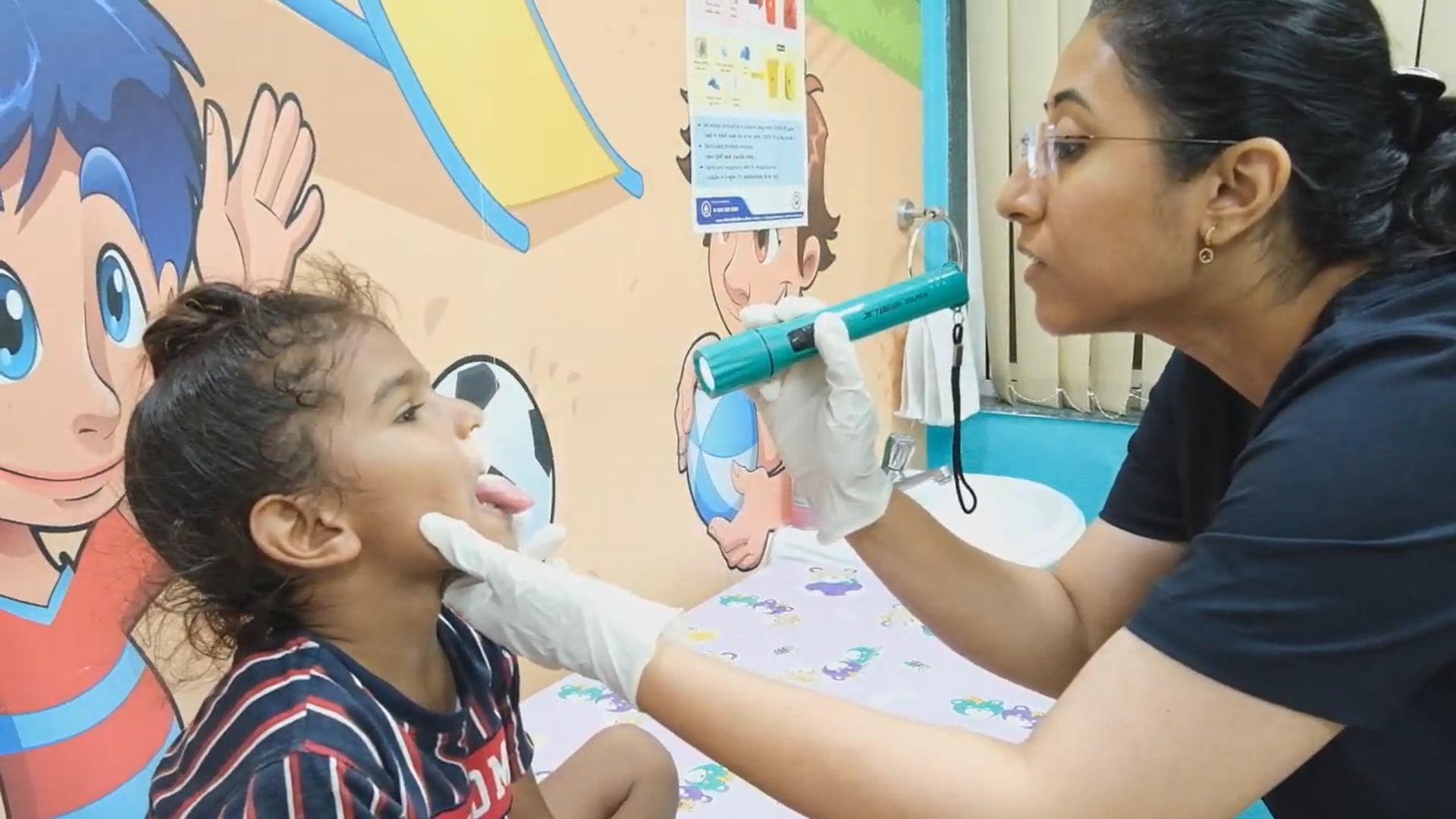This article is sponsored by The Hans Foundation.
Wahida Khatoon (26) remembers 22 February, 2023, like it was yesterday, as she welcomed her first child, a baby boy, into the world. She was discharged from the hospital after eight days and was all set for the trials and tribulations that a new mother has to face. But two days after she went home with her bundle of joy, the concerned Kolkata resident started noticing alarming signs.
The 10-day-old baby was turning blue when he cried. They immediately rushed to a doctor, who diagnosed that there might be a problem with the baby’s heart, and advised the parents to take the baby to a bigger hospital. Wahida recounts that her son was then diagnosed with Congenital Heart Disease (CHD).
CHDs are present at birth and can affect the structure of a baby’s heart and the way it works. They can affect how blood flows through the heart and out to the rest of the body. CHDs can vary from mild (such as a small hole in the heart) to severe (such as missing or poorly formed parts of the heart).
A report in the National Library of Medicine stated that nine out of 1,000 babies have CHD. In India, more than two lakh babies are estimated to have this condition annually. One-fifth of these babies will likely need intervention in the first year of their life, due to a serious birth defect.
The challenge, though, is twofold, as early and timely intervention is of prime importance in this disease. But specialised care is lacking in most government institutions, which causes a financial constraint on parents with low incomes, like Wahida.
Wahida found help through The Hans Foundation, a charitable trust, which, through its ‘Little Hearts’ programme, has helped over 3,000 children with CHD in the past decade.
Where timely intervention is key

Started in 2009, The Hans Foundation works for the health and well-being of marginalised and rural communities. As the foundation worked closely with children and persons with disabilities, it soon realised the need for better medical facilities and early intervention for the underprivileged.
During interactions with doctors, they found that a major area which needed attention was CHD, which is one of the most common birth defects in newborns. The Global Burden of Disease Study 2017 found that CHD was the seventh biggest contributor to global infant mortality and caused 1.8 lakh infant deaths in 2017. As such, in 2013, the foundation started working to provide aid for surgical interventions for children born with congenital heart defects, in partnership with leading hospitals in the country, under its ‘Little Hearts Program’.
“Congenital Heart Disease (CHD) holds the foremost position globally in causing deaths linked to birth defects, persisting as a significant contributor to mortality and morbidity in both paediatric populations of developing and developed nations. In India only, it accounts for 10 percent of infant deaths, despite notable advancements in diagnosing and treating CHDs,” says Dr Viresh Mahajan, Director of Paediatric Cardiac Sciences & Scientific Director of Clinical Research, Sarvodaya Hospital, Faridabad.
Detecting congenital heart disease is possible during prenatal and postnatal stages through diverse diagnostic methods.
“Time sensitivity is critical, as any delay can prove fatal for infants. Timely treatment is very important as a child can lead a normal life in most congenital heart defects if treated at the optimal time,” adds Dr Mahajan.
Doctors state that early intervention is key. Dr Mahajan adds that children with CHD can lead healthy and lengthy lives with early identification and prompt intervention.

Dr Vishal Changela, Paediatric Interventional Cardiologist at SGVP Holistic Hospital in Ahmedabad, states that only some patients with CHD need surgery.
“Some patients just need medications and follow-up. 90 percent of children with CHD can lead a normal life with timely intervention. The problem lies with the time of diagnosis. If done early, we can act immediately,” he says.
If the diagnosis is not done on time, Dr Changela has seen cases of adults with irreversible damage to the heart and lung, in which cases only palliative care is possible.
Surgical care has also evolved with hospitals seeing success rates close to 98 percent, according to Dr Mahajan.
RBSK (Rashtriya Bal Swasthya Karyakram) — a national initiative to screen and treat childhood diseases and disabilities, including CHD has been running since 2012. Yet, lack of awareness prevents women from going for antenatal screenings and screenings after birth.
Despite advanced diagnosis and treatment, CHD still remains largely undiagnosed or is diagnosed when it’s too late.
But what happens in cases like Wahida’s son, who was diagnosed on time, thanks to the alertness of the parents, but faced with a massive bill of over Rs 3 lakh.
After being treated at a government hospital, Wahida was asked to visit a specialist at a private hospital, R N Tagore Hospital, Kolkata. Here, the doctor assessed the baby and diagnosed him with a Ventricular Septal Defect (VSD), which needed surgery. The surgery (done when the baby was 1.5 months old) would cost over Rs 3.5 lakh.
Wahida’s husband, Aslan, works as a salesman with an income of Rs 1.2 lakh per annum. As they explained their situation at the hospital, they got help through The Hans Foundation, which financially supported the surgery. The baby also needed an open heart surgery in January 2024, which would cost Rs 4.8 lakh. This too, was supported by The Hans Foundation.
Thanks to the timely intervention, the baby is now well and is meeting all his milestones just like any other infant, says Wahida.
Saving 3,000 lives

The Hans Foundation is working on solving the financial problems as these surgeries are very expensive for the common man. But this one surgery can save a child and improve their quality of life. In most cases, CHD requires immediate paediatric cardiac care, either in the first month or first year of life.
“In certain instances, surgery may be imperative within the initial hours or days of the child’s life. Hence, early diagnosis and timely management stand as pivotal elements in the treatment process,” says Dr Mahajan.
The Hans Foundation has partnered with 15 hospitals — such as the National Heart Institute, Wockhardt Hospital, Fortis, Apollo, The Narayana Group and more — across the country. So far, they have helped over 3,000 children with CHD get surgery as soon as required — including a 26-day-old baby.
The Foundation provides this financial support to patients with an annual income below Rs 2.5 lakh and children below the age of 20. The Little Hearts Programme supports a diverse range of surgeries — including procedures such as Atrial Septal Defect (ASD), Ventricular Septal Defect (VSD), Tetralogy of Fallot (ToF) and more complex surgeries.
In addition to providing immediate financial assistance, the foundation also offers post-surgery care, which is equally vital. In cases where parents are unable to afford medications or specialist fees, the foundation extends support. Moreover, they conduct awareness programmes in collaboration with hospitals to ensure that parents are knowledgeable about symptoms and know when to seek assistance.
“Parents should remain vigilant and not overlook common congenital heart disease (CHD) symptoms in newborns, including challenges in feeding, rapid breathing, or bluish skin discolouration, as early recognition is crucial for timely intervention,” says Dr Mahajan.
Buoyed by the response to the programme and with an intention to help more children, The Hans Foundation is now expanding its intervention under The Hans Paediatric Care programme that will focus on various aspects of child health. It hopes to partner with more hospitals to provide financial access to families and build a world where every child has equal access to quality healthcare.
For parents like Wahida, this financial assistance is of paramount importance.
“I went through such a tough time when I suddenly discovered that my 10-day-old baby had a heart problem. While I got the diagnosis soon, we didn’t know how to arrange the money. My baby is hale and healthy today, all thanks to The Hans Foundation,” says Wahida.
After surgery, babies can lead a normal life. What advice does Dr Changela give his patients? “The only thing I tell parents who ask me about what precautions they should take is to be free of worry!”
Edited by Pranita Bhat
No comments:
Post a Comment